What Are the Top Causes of Male Infertility?
Fertility Treatment
at Is Male Infertility?
Any health condition that reduces a man's chances of getting pregnant with his female partner is referred to as male infertility. It impacts 7% of men and makes up 40–50% of all cases of infertility. This phenomenon is often linked to abnormalities in semen, including sperm count, motility, and morphology, all of which have a combined effect on semen quality. To treat the cause of male infertility and assist the couple in becoming parents, early diagnosis through diagnostic testing is crucial. The causes and treatments for male infertility are covered in this article.

Male Reproductive Factors
Male fertility is a complex process and depends on occurring the following factors:
- Produce healthy sperm: This factor largely involves the growth and formation of male reproductive organs during puberty. At least one of the testicles must function adequately to produce testosterone and other hormones to stimulate and maintain sperm production;
- Sperm have to be carried into the semen: The likelihood that one of your sperm will fertilize your partner's egg is decreased if you have a low sperm count. Less than 15 million sperm per milliliter of semen or less than 39 million sperm per ejaculate are considered low sperm counts;
- Sperm must be functional and able to move: Sperm might not be able to successfully reach or penetrate your partner's egg if they display abnormal movement or dysfunction, such as impaired motility or defective function, which lowers the chance of a successful fertilization.
Male infertility Symptoms
The inability to conceive a child is the main sign of male infertility. In some cases, a significant problem such as an inherited disorder, a hormonal imbalance, dilation of the blood vessels around the testicles, or a condition that blocks the passage of sperm can cause signs and symptoms. There are some other symptoms related to male infertility include:
- Having sexual problems such as difficulty with ejaculation or small volumes of fluid ejaculated reduced sexual desire, or difficulty getting and maintaining an erection (erectile dysfunction);
- Swollen or painful testicles;
- Frequent respiratory infections;
- Having no sense of smell;
- Enlargement or swelling of breast tissue (gynecomastia);
- Chromosomal or hormonal abnormality such as reduced facial and body hair;
- Have lower than average sperm count (fewer than 15 million sperm per milliliter of semen or a total sperm count of less than 39 million per ejaculate).

When to see a doctor?
See a doctor if you have the symptoms mentioned earlier if you have been unable to conceive a child after a year of regular, unprotected intercourse, or if you even have experienced any of the following:
- Having a history of prostate, testicle, or sexual problems;
- Having undergone groin, testicle, penis, or scrotum surgery.
Causes of Male Infertility
Medical Causes
Generally, many health issues and medical treatments are the causes of male infertility. In the following the most common causes of this disease are mentioned:
- Varicocele
- Infection
- Ejaculation issues
- Antibodies that attack sperm
- Undescended testicles
- Hormone imbalances
- Defects of tubules that transport sperm
- Chromosome defects
- Problems with sexual intercourse
- Celiac disease
- Certain medications
- Prior surgeries
- Environmental Causes
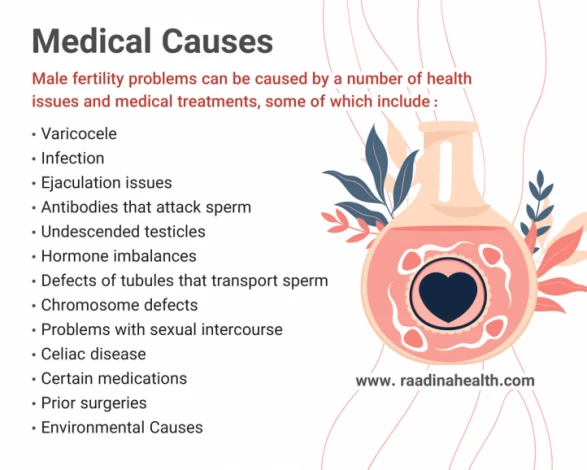
Varicocele
A varicocele, the most common reversible cause of male infertility, is a condition where the veins draining the testis widen and swell. Varicoceles may occur due to abnormal testicular temperature regulation and result in reduced quality of the sperm. Varicocele treatment can improve sperm count and function, which may be helpful while using assisted reproductive techniques such as in-vitro fertilization.
Infection
Some infections may affect sperm production or sperm health or cause scarring that blocks the passage of sperm. These include epididymis inflammation (epididymitis) or testicle inflammation (orchitis) and some sexually transmitted infections, such as gonorrhea or HIV. These infections can lead to permanent testicular damage.
Ejaculation issues
Retrograde ejaculation is when semen enters the bladder during orgasm instead of coming out of the tip of the penis. Different conditions that can cause retrograde ejaculation include diabetes, spinal cord injuries, medications, and bladder, prostate, or urethral surgery. Although some men with spinal cord injuries or certain diseases can't ejaculate semen, they still produce sperm. In these cases, doctors retrieve sperm to use in assisted reproductive techniques.
Antibodies that attack sperm
Anti-sperm antibodies are cells of the immune system that mistakenly identify sperm as harmful invaders and try to destroy them.
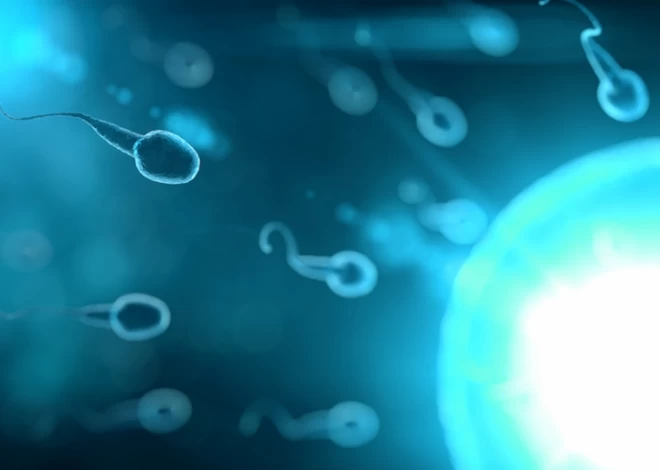
Tumors
Nonmalignant tumors and cancers may affect the male reproductive organs through the glands that release reproductive hormones, such as the pituitary gland, or for unknown reasons. In some cases, male fertility can be affected by surgery, radiation, or chemotherapy to treat tumors.
Undescended testicles
In some men, the problem begins during fetal development, when one or both testicles cannot pass from the abdomen into the sac, which generally contains the testicles. The rate of fertility problems is higher in men with this condition.
Testicular Atrophy
Testicular atrophy, as one of the infrequent causes of male infertility, refers to a condition where one or both of the testicles shrink in size. This problem may happen due to various reasons, such as aging, infection, testicular torsion, hormonal imbalance, drug and alcohol abuse, injury, varicocele, testicular cancer, etc. Since testicular shrinkage can cause low sperm count and infertility, it is crucial to diagnose and treat it as early as possible. The most efficient treatments to restore testicle size are taking antibiotics, hormone therapy, varicocelectomy, improving the lifestyle by avoiding alcohol and drugs, and, in severe cases, using testicular prostheses.
Hormone imbalances
Infertility can result from testicular disorders or hormonal imbalances in the hypothalamus, pituitary, thyroid, and adrenal glands. Hormonal problems such as low testosterone (male hypogonadism) may result from several underlying causes and lead to male fertility problems.
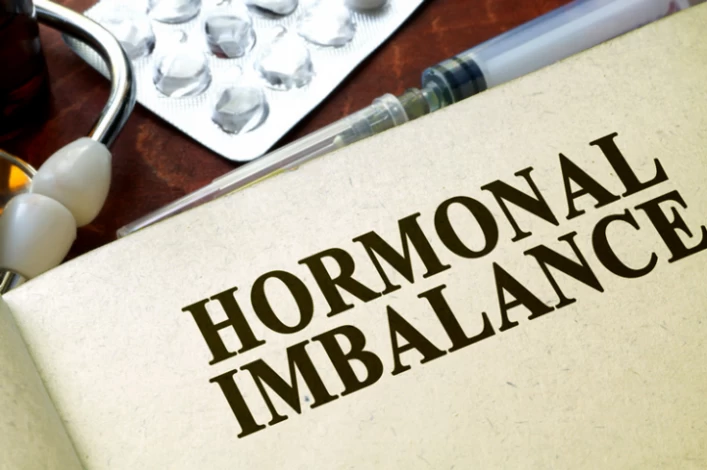
Defects of tubules that transport sperm
The tubes that carry sperm can be blocked for various reasons, including injury from surgery, previous infections, trauma, or abnormal growths, such as cystic fibrosis or similar inherited conditions. Blockage can occur within the testicles, in testicular drainage tubes, in the epididymis, in the vas deferens, near the ejaculatory ducts, or the urethra.
Chromosome defects
In some inherited disorders, such as Kleinfelter syndrome, a male is born with two X chromosomes and one Y chromosome (instead of one X and one Y), which results in the male reproductive organs growing abnormally. Cystic fibrosis, Kallmann's syndrome, and Kartagener's syndrome are other genetic syndromes associated with infertility.
Problems with sexual intercourse
These problems include difficulty maintaining a sufficient erection for sex (erectile dysfunction), premature ejaculation, painful intercourse, and anatomical abnormalities such as having a urethral opening beneath the penis (hypospadias) or relationship problems.
Celiac disease
It is a digestive disorder caused by sensitivity to gluten and can lead to infertility in men. In such a condition, it is necessary to adopt a gluten-free diet, which may be somewhat helpful.
Certain medications
Certain drugs can interfere with sperm production and cause male fertility problems. They include testosterone replacement therapy, long-term use of anabolic steroids, cancer medications (chemotherapy), antifungal drugs, ulcer drugs, etc.

Prior surgeries
Some surgeries may result in the absence of sperm in your semen, including vasectomy, inguinal hernia repairs, testicular or scrotal surgeries, prostate surgeries, and extensive abdominal surgeries performed for testicular and rectal cancers. In such cases, surgery is performed to reverse these blockages or bring back sperm straight from the epididymis and testicles.
Environmental Causes
Excessive exposure to certain environmental elements such as heat, toxins, and chemicals can decrease sperm production or sperm function. These ecological elements include:
- Industrial chemicals: Decreased sperm count may be related to long-term exposure to benzenes, toluene, xylene, pesticides, herbicides, organic solvents, painting materials, and lead.
- Heavy metal exposure: Heavy metals such as lead can cause male fertility problems.
- Radiation or X-rays: Radiation exposure can decrease sperm production. Although it often eventually returns to average amounts, high doses of radiation can reduce sperm production forever.
- Overheating the testicles: High temperatures disrupt sperm production and function. Studies have shown that frequent use of a sauna or hot tub can temporarily reduce your sperm count. Other factors increase scrotal temperature and slightly reduce sperm production, such as sitting long, wearing tight clothing, or working prolonged hours on a laptop computer.

Health, Lifestyle, and Other Causes
Some other factors cause male infertility, such:
- Drug use: Anabolic steroids to enhance muscle growth and strength can lead testicles to shrink and also reduce sperm production. Using cocaine or marijuana can temporarily decrease sperm count and affect sperm quality.
- Alcohol use: Excessive drinking of alcohol can lead to liver disease and male fertility problems. Drinking alcohol lowers testosterone levels, causes erectile dysfunction, and reduces sperm production.
- Tobacco smoking: Male smokers produce a lower sperm count than those who do not smoke. Smoking may affect male fertility.
- Emotional stress: The production of certain hormones needed to produce sperm can be affected by emotional stress. The prolonged emotional stress may lead to reduced sperm count.
- Depression: Research shows that if a male partner is severely depressed, she may be less likely to become pregnant. Moreover, depression in men may lead to low sex drive, erectile dysfunction, or delayed ejaculation.
- Weight: Obesity can reduce male fertility by affecting sperm count and causing hormonal changes.
- Engaging in certain occupations, such as welding, or involving prolonged sitting, such as truck driving, may also increase the risk of male infertility.

Male Infertility Treatments
Infertility Treatment Methods depends on what's causing infertility. Drugs or surgery can fix many problems that lead to conception through regular sex. The treatments are categorized into three groups:
- Non-surgical therapy;
- Surgical Therapy;
- Treatment for Unknown Causes.
Use of Medication in Treating Male Infertility
Standard medications are suggested if the cause of male infertility is an underlying medical condition. For example, antibiotics and anti-inflammatory drugs are prescribed if infection and inflammation are detected in reproductive organs. Hormone therapy is another way to treat male infertility. It is used in cases where the testicles have a secondary failure, which means they do not receive enough hormone due to pituitary disorders to produce sperm. Ejaculation disorders also can cause infertility, for which medical treatment is usually effective.
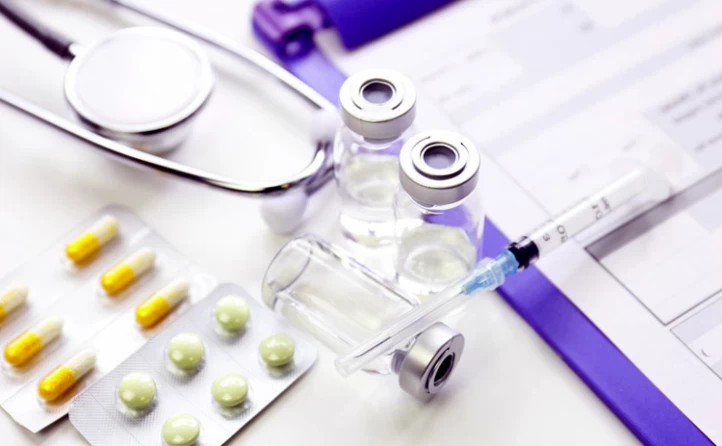
Surgical Options for Male Infertility
Sometimes, the person has an anatomical problem that causes infertility, where medications or lifestyle modifications cannot be helpful. In such cases, surgical treatments may be carried out. For example, if there is an obstruction or blockage in the sperm delivery route, whether congenital or acquired, we have two options for treatment. At first, surgery may be performed to repair the obstruction. On the other hand, sperm may be retrieved directly from the testicles or epididymis through the sperm retrieval technique. The sperm is then used to fertilize an egg in the laboratory environment.
Sometimes, there is an anatomical and structural problem in the transfer of sperm to the outside of the body. For example, in hypospadias, a boy's congenital disability in the opening of the urethra is not located at the tip of the penis; seminal fluid is getting blocked from the exit. In such cases, surgery is needed to correct this structural abnormality.
In some cases, the sperm count in the semen sample is low, or there is no sperm count at all. In such cases, the doctor uses the TESE technique to examine the tubules for the presence of sperm and then tries to obtain sperm from the testicles and epididymis using a needle.
conclusion
Overall, we should note that there are various degrees and types of male infertility for which we cannot introduce a general method. Not being able to conceive a child can be stressful and disappointing for many couples. Still, the desire to have a baby will come true with the help of various new Types of Infertility Treatment Methods.
We support and help you quickly and easily find the right specialist and the best infertility treatment centers to get an acceptable result. We are with you to choose the right center to define the proper treatment method for you. If you have any questions on how to receive male IVF treatment in Iran, please contact us and get a free consultation from our medical consultants.
Contact us for a free initial consultation about Male Infertility
FAQs About Liposuction Aftercare
1.What are the 4 causes of male infertility?
The 4 causes of male infertility are low sperm count or absence of sperm (azoospermia), poor sperm motility, abnormal sperm shape impacting fertilization ability, and Varicocele - enlarged veins in the scrotum, which increases testicular temperature.
2.What are the types of male infertility?
The main types of male infertility are issues with hormone production impacting sperm creation, problems directly within the testes affecting sperm production (testicular), blockages or other issues preventing sperm release, and male infertility with no known cause.
3.Can male infertility be cured?
Male infertility treatment depends on its underlying cause. Some causes, such as infections or varicoceles, are curable. However, other causes, like certain genetic conditions, might be irreversible. Even in cases where the underlying cause isn't treatable, assisted reproductive technologies (ART) like IVF can offer viable options for pregnancy.
4.Is male infertility permanent?
Male infertility is not always permanent. Many causes are treatable. Conditions like infections or varicoceles can often be addressed through fertility medication or surgery. However, some causes, such as severe genetic disorders or damage from certain medical treatments, might result in permanent male infertility. Assisted reproductive technologies can overcome infertility regardless of the cause.
5.My husband is infertile; can I still get pregnant?
Even if your husband is infertile, you can still get pregnant. Assisted reproductive technologies offer multiple options. IVF combined with other ART methods like intracytoplasmic sperm injection (ICSI) can be helpful even with severely impaired sperm. Sperm can be retrieved directly from the testes (TESE) or epididymis (PESA) for use in IVF. Using donor sperm is another option.







 WhatsApp
WhatsApp
 Telegram
Telegram
 Facebook
Facebook
 Email
Email


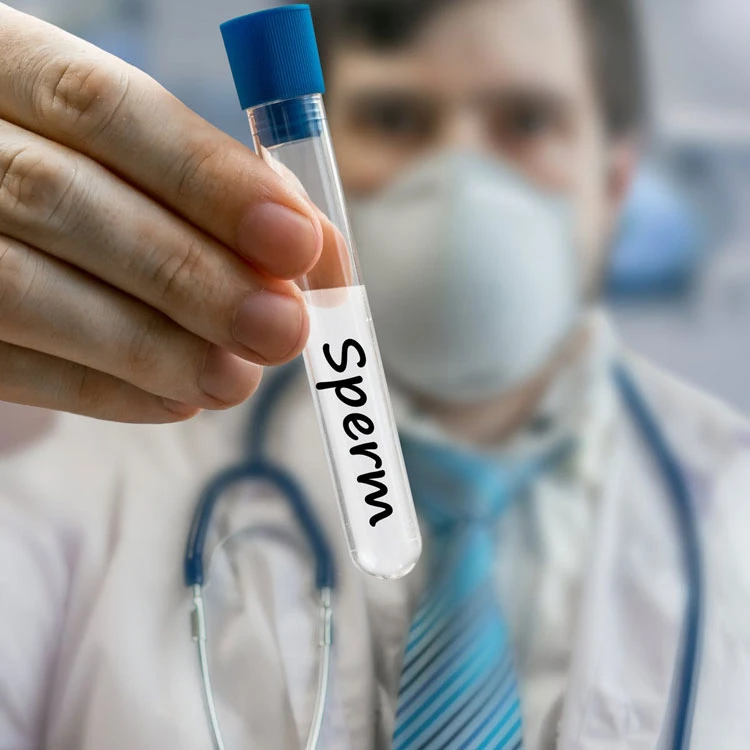


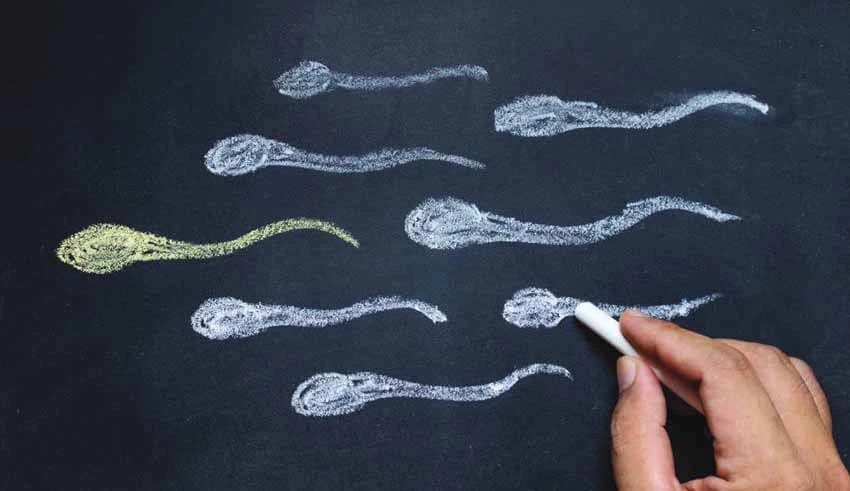

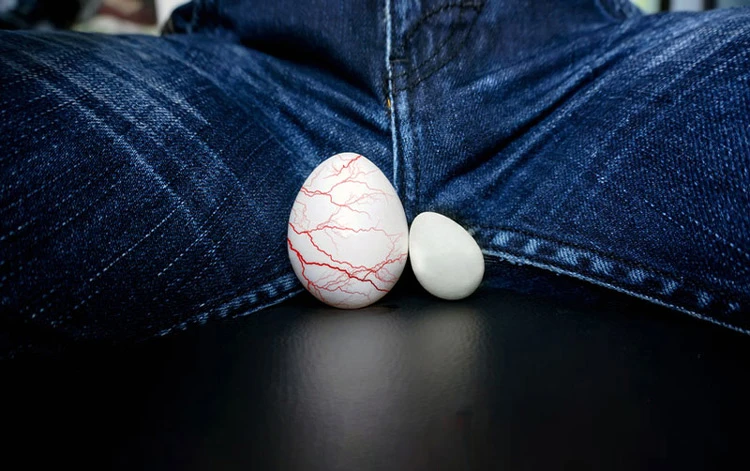
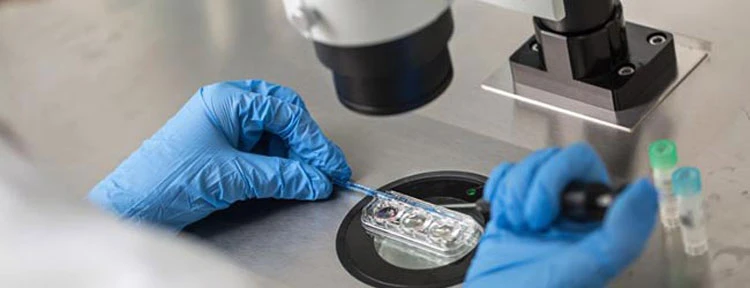

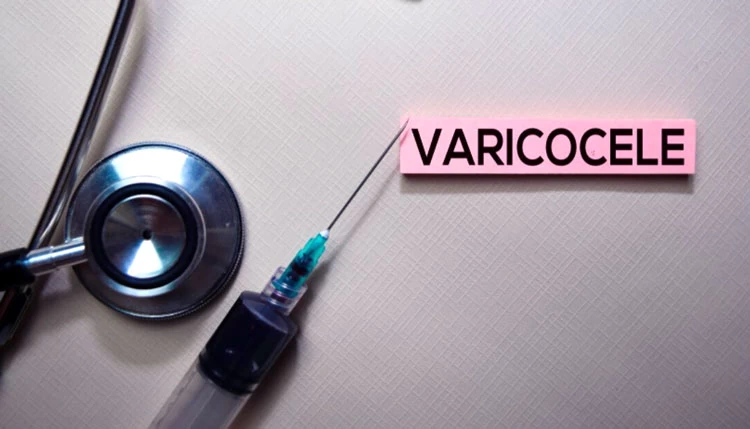
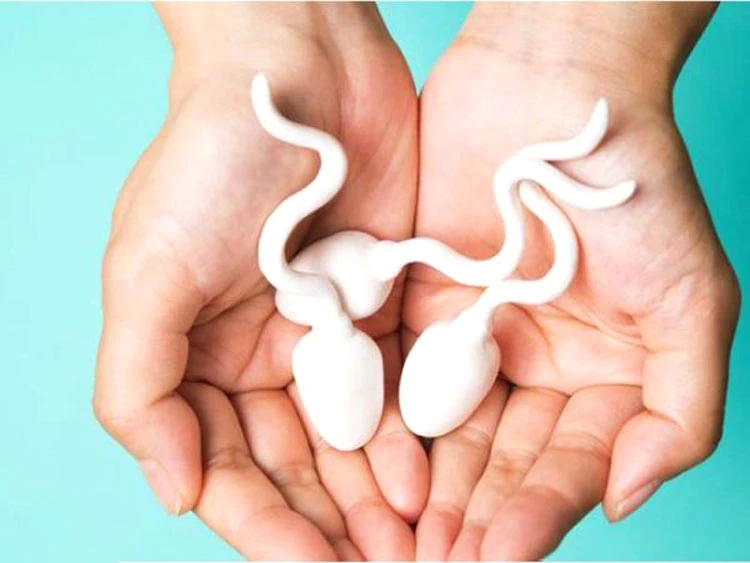
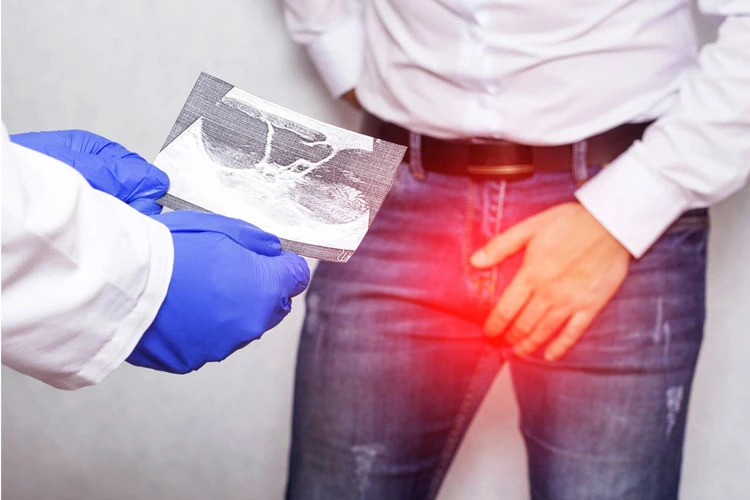

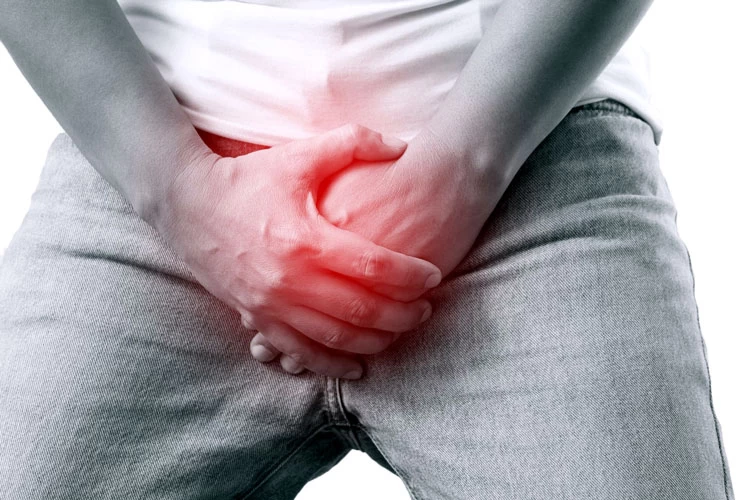


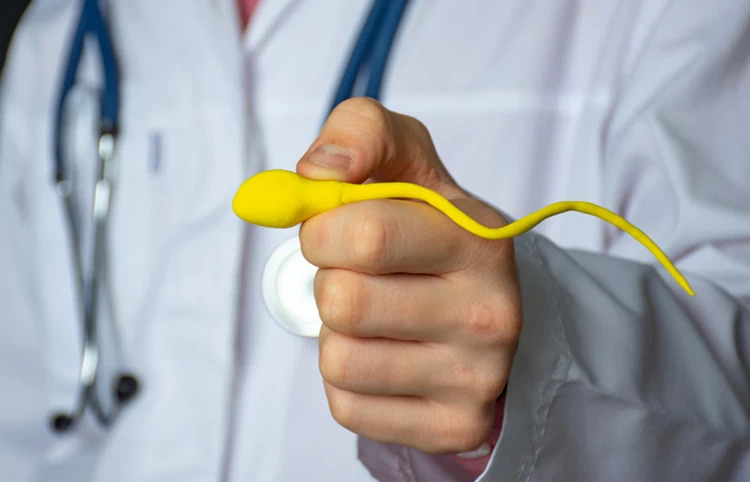
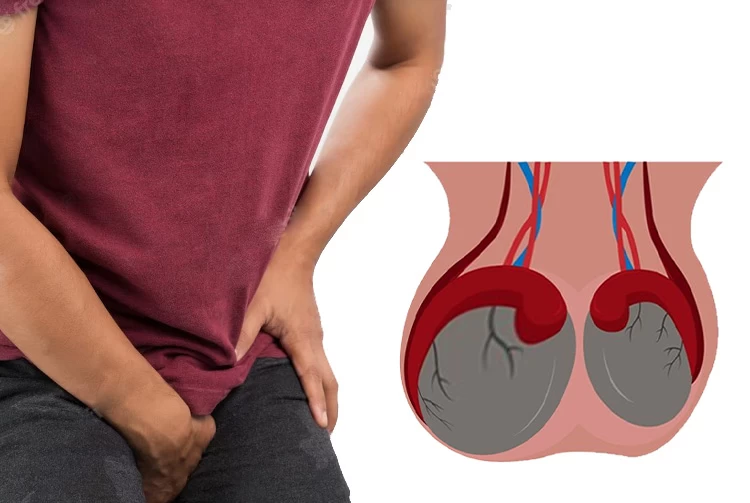

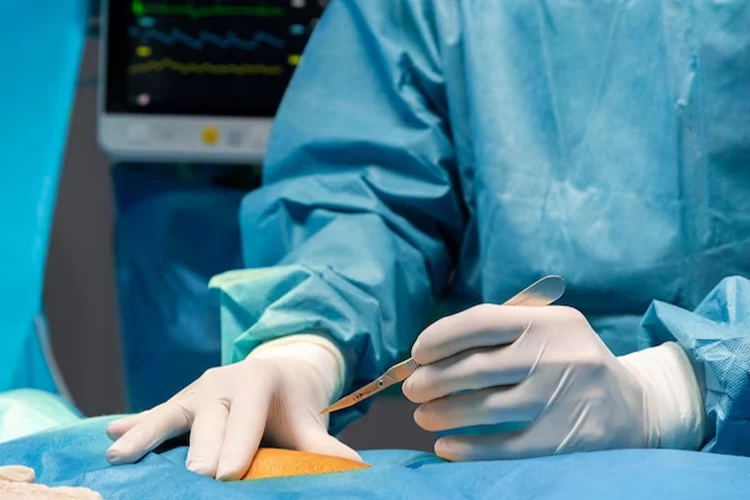
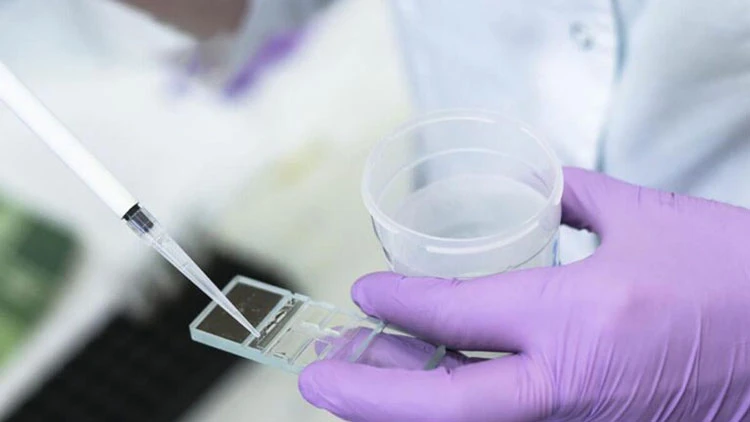
User
-The causes for male infertility can be anything from structural abnormalities, injuries to lifestyle, good thing is treatments are available. One should accept it and seek the medical help for better outcomes